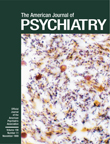Treating Acute Stress Disorder: An Evaluation of Cognitive Behavior Therapy and Supportive Counseling Techniques
Abstract
OBJECTIVE: Acute stress disorder permits an early identification of trauma survivors who are at risk of developing chronic posttraumatic stress disorder (PTSD). This study aimed to prevent PTSD by an early provision of cognitive behavior therapy. Specifically, this study indexed the relative efficacy of prolonged exposure and anxiety management in the treatment of acute stress disorder. METHOD: Forty-five civilian trauma survivors with acute stress disorder were given five sessions of 1) prolonged exposure (N=14), 2) a combination of prolonged exposure and anxiety management (N=15), or 3) supportive counseling (N=16) within 2 weeks of their trauma. Forty-one trauma survivors were assessed at the 6-month follow-up. RESULTS: Fewer patients with prolonged exposure (14%, N=2 of 14) and prolonged exposure plus anxiety management (20%, N=3 of 15) than supportive counseling (56%, N=9 of 16) met the criteria for PTSD after treatment. There were also fewer cases of PTSD in the prolonged exposure group (15%, N=2 of 13) and the prolonged exposure plus anxiety management group (23%, N=3 of 13) than in the supportive counseling group (67%, N=10 of 15) 6 months after the trauma. Chronic PTSD in the supportive counseling condition was characterized by greater avoidance behaviors than in the prolonged exposure condition or the prolonged exposure plus anxiety management condition CONCLUSIONS: These findings suggest that PTSD can be effectively prevented with an early provision of cognitive behavior therapy and that prolonged exposure may be the most critical component in the treatment of acute stress disorder.



